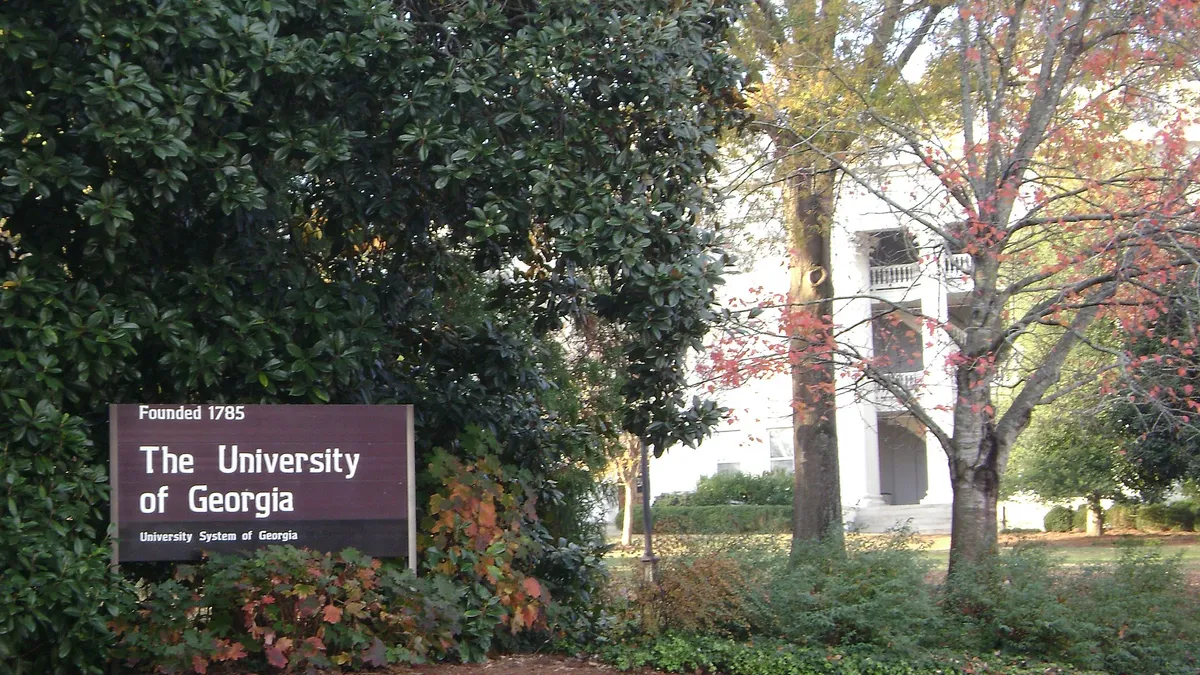Dive Brief:
- The American Association of University Professors on Saturday censured the University System of Georgia, one of the most prominent higher education networks in the U.S., over new policies the faculty organization says undermine tenure and academic freedom.
- USG adopted new tenure rules in October. AAUP objects to provisions of the policies that allow institutions to dismiss poor-performing tenured professors without an adjudicative hearing before a faculty panel.
- System spokesperson Lance Wallance said in an emailed statement USG was disappointed AAUP ignored its commitment to academic freedom and due process but it remains committed to working with faculty members "to make sure post-tenure review strengthens accountability and rewards the work faculty already do to empower student success in the 21st century."
Dive Insight:
An AAUP censure is intended to signal to the public that an institution or system hasn't satisfactorily fostered an environment where academic freedom can thrive. It does not have immediate consequences, but the organization has argued it drives off prospective students and faculty.
More than 50 institutions are currently censured.
AAUP threatened a censure a couple of months after USG's governing board approved its new tenure policies, which create new routes to fire tenured faculty. Faculty can also be dismissed for not improving unsatisfactory performance after a post-tenure review.
The faculty group in December released a report outlining in greater detail how the policies allegedly violate academic freedom. Acting USG Chancellor Teresa MacCartney at the time said she "wholly and strongly" disagreed with that report's conclusions.
On Saturday, AAUP President Irene Mulvey issued a statement doubling down on the organization's accusations that the new policies flout academic freedom.
Mulvey called for the system to rescind the rules.
"By its unilateral actions, the USG board of regents has proclaimed to the academic community that it does not view academic freedom as important for public higher education in the state," Mulvey said. "As our thorough report makes clear, the removal of protections for academic freedom will have a devastating effect on the quality of education in the USG system, and on recruitment and retention of faculty and students."
The association has objected to other state policymakers' actions in recent months that would weaken or destroy tenure systems.
A bill in South Carolina would have ended tenure at the state's public colleges, though a coalition of education advocates that included the AAUP halted its progress. The bill's sponsor, a Republican, said he would reintroduce the proposal during the next legislative session in 2023.
And Texas Lt. Gov. Dan Patrick recently pledged to abolish public colleges' tenure systems in response to the University of Texas at Austin faculty publicly affirming their belief that instructors should control classroom topics and be able to teach critical race theory and other race-related subjects.










